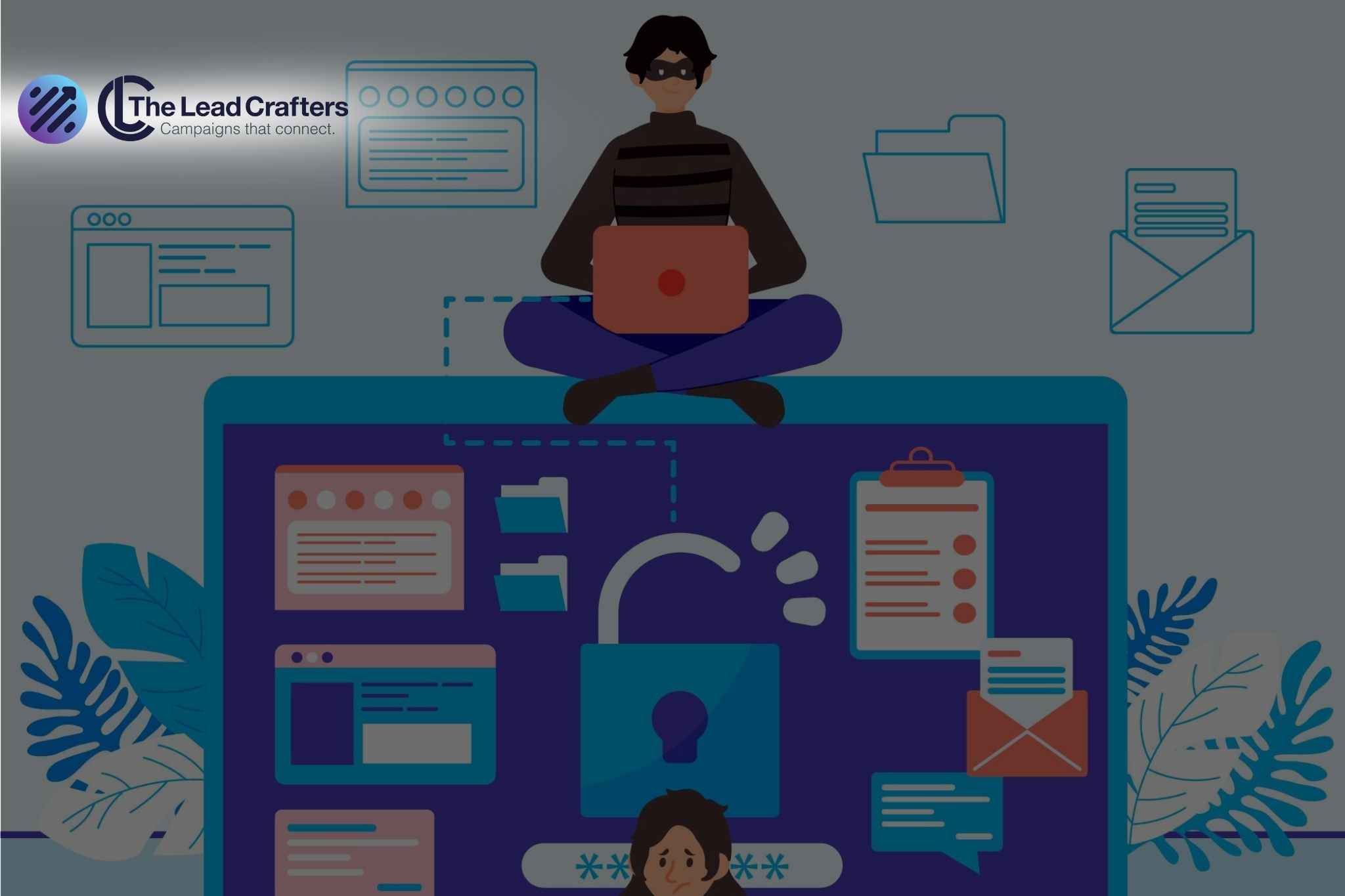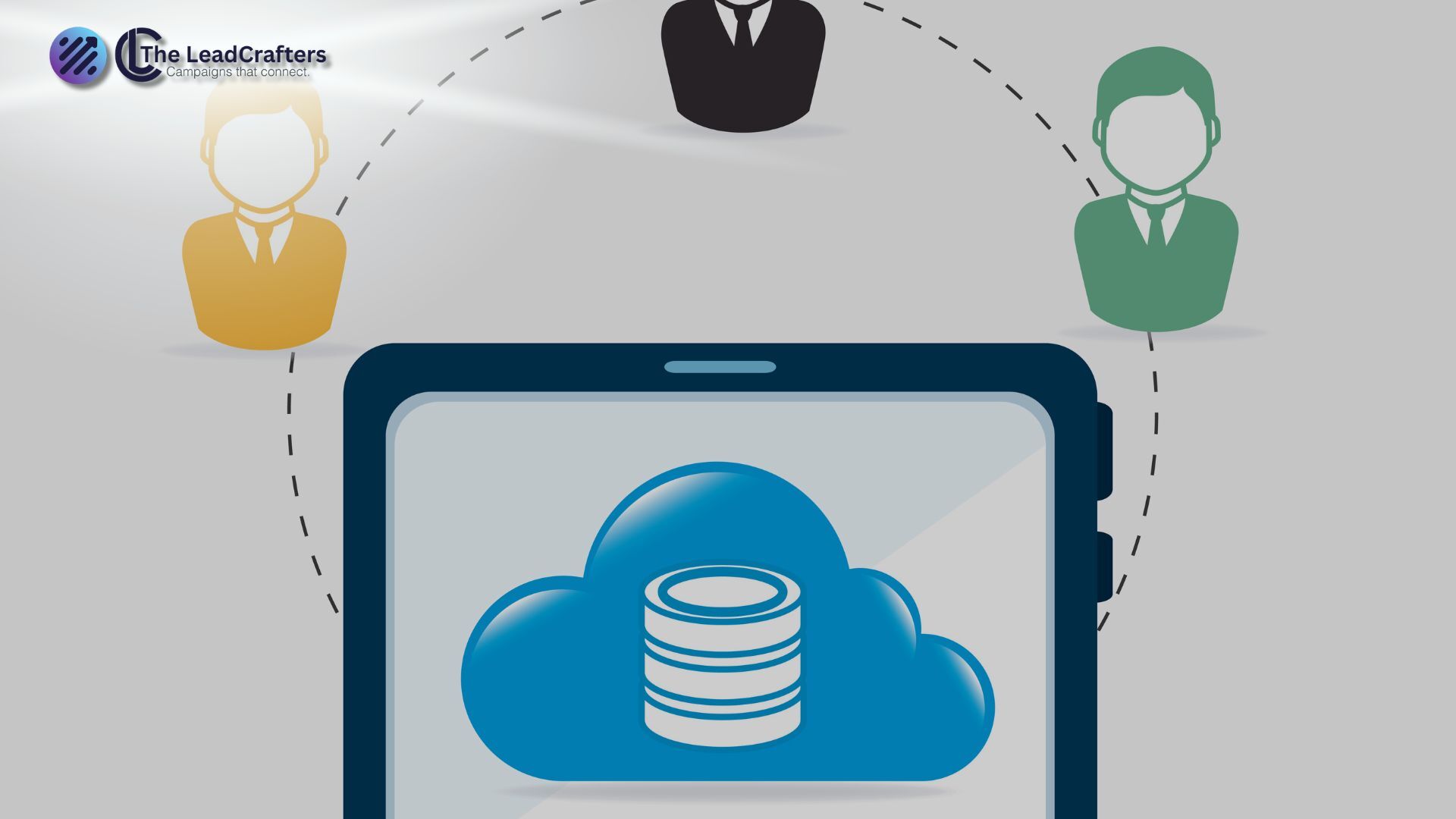In today’s hyper-competitive B2B landscape, personalization is no longer optional—it’s a necessity. Buyers expect tailored experiences, content that speaks directly to their needs, and outreach that feels relevant. However, as businesses strive to deliver these personalized interactions, they walk a fine line between effective personalization and privacy intrusion.
At The LeadCrafters, we understand this delicate balance. Leveraging B2B databases effectively requires not just data—it demands responsible, privacy-conscious practices that build trust and drive results.
In this article, we’ll explore how businesses can strike the right balance between personalization and privacy when using B2B databases for lead generation and demand generation strategies.
Why Personalization Matters in B2B Marketing
In B2B sales, where buying cycles are longer and involve multiple stakeholders, personalization is a proven way to:
- Increase engagement
- Shorten the sales cycle
- Improve lead conversion rates
- Enhance customer lifetime value
According to Salesforce, 72% of B2B buyers expect vendors to personalize communications to meet their specific needs. This means companies that use B2B data to segment, score, and target leads more effectively gain a significant edge.
The Role of B2B Databases in Personalization
A B2B database is more than a contact list—it’s a strategic asset. It provides insights into:
- Company size and revenue
- Industry and job function
- Technographic and firmographic data
- Behavioral triggers (e.g., event attendance, email engagement)
By leveraging these data points, marketers can craft campaigns that resonate with individual personas across the buying journey. But the richer the data, the greater the privacy implications.
The Rising Importance of Data Privacy in B2B
Data privacy isn’t just a consumer issue. With regulations like GDPR, CCPA, and India’s Digital Personal Data Protection Act, B2B companies must rethink how they collect, store, and use personal data.
Key privacy concerns in B2B database use include:
- Consent: Have users opted in to receive marketing communications?
- Transparency: Are you clear about how data will be used?
- Security: How is sensitive data stored and protected?
- Compliance: Are your practices aligned with global data protection laws?
Failure to comply can lead to reputational damage, legal action, and lost trust.
The Privacy-Personalization Trade-off: Finding the Balance
The goal is not to choose between personalization and privacy—it’s to achieve both. Here’s how your business can do that:
1. Adopt Privacy-by-Design Principles
From the start, embed privacy into your marketing and database strategies:
- Limit data collection to only what’s necessary
- Use anonymized or aggregated data where possible
- Implement role-based access to sensitive information
- Regularly audit your B2B database for compliance
2. Practice Ethical Data Sourcing
Only use first-party and permission-based third-party data. Avoid purchasing lists from dubious sources that lack transparency or consent.
At The LeadCrafters, we ensure that every lead in our database is GDPR- and CCPA-compliant, helping clients maintain integrity and avoid risk.
3. Get Explicit Consent and Honor Preferences
Include clear opt-ins on your forms, and offer value in exchange (e.g., free resources, gated content). Respect opt-outs immediately and provide easy preference management for email and phone communications.
4. Segment Responsibly
Don’t over-segment to the point that your outreach feels invasive. Use broad yet relevant segmentation—like by job function, company size, or industry—rather than hyper-specific personal details.
Example:
- ✅ “Discover the latest IT trends for mid-size enterprises.”
- ❌ “We know your IT budget is $300,000—let’s talk.”
5. Use Contextual Personalization
Rather than overusing first names and company info, personalize based on intent and context—such as previous interactions, content consumed, or product interest.
This kind of behavioral personalization feels natural and adds value without crossing privacy boundaries.
Tools and Tactics to Balance Both
Here are some tools and tactics to help maintain privacy while still delivering powerful personalization:
| Tool/Strategy | How It Helps |
|---|---|
| CRM Integration | Centralizes consent, preferences, and segmentation data. |
| Lead Scoring | Focuses efforts on the most engaged leads without over-personalizing cold contacts. |
| Progressive Profiling | Gathers data gradually through multiple interactions, instead of upfront overload. |
| Dynamic Content | Allows website or email personalization based on non-personal data (industry, location, etc.). |
| Privacy-Centric Email Platforms | Help track engagement while complying with opt-in rules and data storage laws. |
Examples of Privacy-Conscious Personalization
Let’s break down what privacy-respecting personalization looks like in real campaigns:
✅ Good Example:
Subject Line: “Strategies for Growing Your SaaS in 2025”
Body: “As a marketing director in the SaaS space, you’re likely preparing for tighter budgets and higher expectations. Here’s a data-backed guide to help.”
Why It Works: Uses industry + job title without breaching individual privacy. The message is value-driven and relevant without being creepy.
❌ Bad Example:
Subject Line: “Hey XYZ, We Know You Visited Our Pricing Page at 9:43 AM”
Why It Fails: Hyper-personalization without consent feels invasive and undermines trust—even if technically accurate.
Benefits of Getting It Right
When you strike the right balance, your business benefits from:
- Increased trust and engagement
- Higher conversion rates
- Improved brand reputation
- Lower legal and compliance risk
More importantly, your prospects feel respected. They’re more likely to respond positively when personalization serves their needs rather than exploits their data.
How The LeadCrafters Supports Ethical B2B Data Use
At The LeadCrafters, we specialize in high-quality lead generation that’s both personalized and privacy-compliant.
✅ We use only opt-in, verified B2B contacts.
✅ Our segmentation strategy is powered by clean, compliant data.
✅ Our campaigns align with global privacy regulations.
✅ We empower businesses to engage their audience without breaching trust.
Explore our services to learn how we can build your personalized pipeline without compromising data ethics. Visit TheLeadCrafters.com
Final Thoughts
The tension between personalization and privacy isn’t going away—it’s only becoming more important. As B2B marketers, embracing both is no longer optional. It’s the foundation of sustainable lead generation and long-term customer relationships.
By choosing the right tools, following data privacy best practices, and partnering with a responsible lead generation provider like The LeadCrafters, you can deliver personalized experiences that build trust, protect data, and drive ROI.



